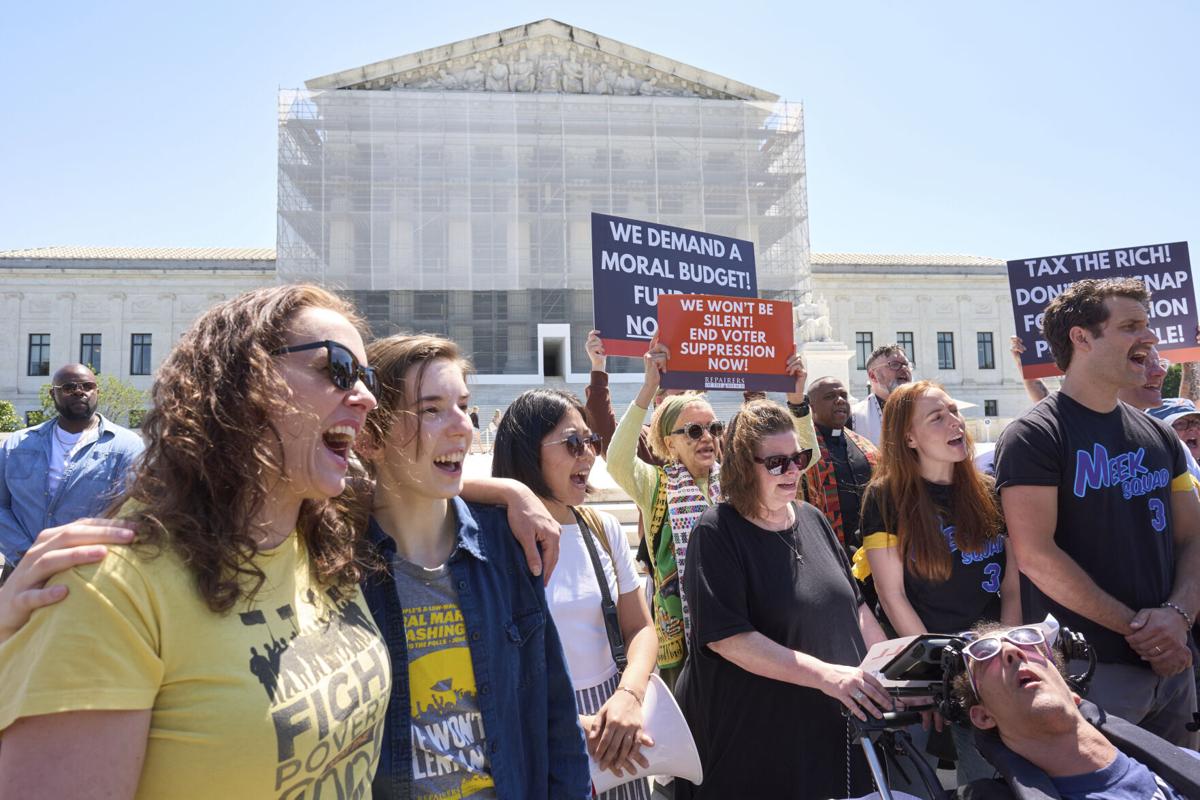It sounds like a perfectly reasonable proposition: If low-income Americans are going to get their health care coverage through the government’s Medicaid program, accepting aid from the taxpayers, those recipients who are physically able to hold jobs should do so. We don’t actually disagree with that philosophical premise.
But that ĺĪ≤ű≤‘‚Äôt the ironclad argument it might appear to be for the kinds of work reporting requirements for Medicaid that are currently on the table as congressional Republicans seek to extend their 2017 tax cuts. In fact, once you dig into the data regarding work requirements, it becomes clear they are unnecessary, unworkable and mostly succeed only in throwing poor Americans out of the Medicaid system even when recipients are in fact working.
People are also reading…
The danger as the congressional budget debate continues is that that may be the whole point: That congressional Republicans, intent on delivering more tax cuts for the rich, are trying to pare down the Medicaid rolls in any way they can to help pay for those tax cuts.
√ŘŤ÷÷Ī≤• Sen. Josh Hawley, for one, has emerged as an unlikely champion of the Medicaid system ‚ÄĒ in his rhetoric, at least. But like many of the system‚Äôs putative defenders in the GOP, Hawley has left himself an out by supporting work requirements and other ‚Äúreforms‚ÄĚ to address supposed waste. It‚Äôs more important than ever that Americans see through this seductive myth that Medicaid is bloated by abuse, fraud and lazy recipients who could be working but aren‚Äôt.
That myth is laid bare by, among many , a from earlier this year. The non-partisan foundation reports that 92% of Medicaid recipients are either working or are unable to work due to disability, child care responsibilities or school attendance. Those are exemptions that would normally apply under most Medicaid work requirement proposals.
In other words, the number of able-bodied Medicaid recipients who are just sitting around at home by choice is already vanishingly small. That conclusion jibes with common sense. Medicaid benefits average about $9,000 annually per enrollee and are paid directly to their health care providers; it’s not like Medicaid recipients are getting actual money that they can live on instead of working.
So if most who can work are already working, what’s the harm in having them officially confirm their employment to the Medicaid system once a month? As states that have tried this have learned, it’s not remotely that simple.
Part of the problem is that work requirements necessitate another huge layer of bureaucracy in a system already numbingly difficult for states to administer and for recipients to use. , for example, has long been a lumbering mess even without a work requirement, with the state routinely missing the statutory 45-day deadline for processing applications and a Medicaid call center that last year made callers wait an average of almost an hour for service.
Arkansas in 2018 had Medicaid work requirements in place for nine months, during which 18,000 recipients lost coverage. Multiple studies found a major reason wasn’t that recipients weren’t working, but that they couldn’t successfully navigate the process of reporting their work to the system, which required monthly check-ins through a glitchy online portal or by phone. Predictably enough, recipients without reliable access to computers or phones, including homeless recipients, were among those expelled.
Then there is the nature of work itself for the poorest of the working poor. Their jobs tend to be less stable, with more likelihood of layoffs, employer-mandated cutbacks on hours, jumping jobs and other temporary pauses that could easily lead to Medicaid coverage lapses.
All of this helps explain why study after study has found that Medicaid work requirements don‚Äôt have any appreciable impact on employment numbers among recipients ‚ÄĒ while having a dramatic negative impact on their continuing medical coverage.
The budget package recently passed by the House and under debate in the Senate would hack more than $600 billion from the Medicaid system, endangering the health care of millions of low-income Americans. Republicans insist those won‚Äôt be benefit cuts to eligible recipients but represent expected savings from eliminating ‚Äúwaste, fraud and abuse,‚ÄĚ with a work requirement as part of that. Never mind that no one has identified anything like that level of .
At some point, Hawley will have to put his bold talk of defending low-income √ŘŤ÷÷Ī≤•ans to an actual vote. If and when he and other senators vote to eliminate hundreds of billions of dollars in health care from millions of America‚Äôs most vulnerable citizens, their constituents should see it for what it is: abandoning the poor to coddle the rich.









